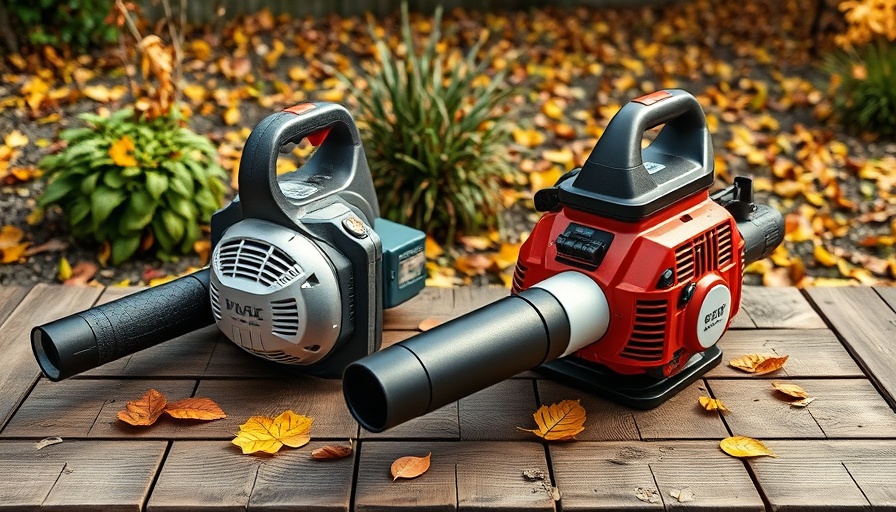
The Leaf Blower Showdown: Electric vs. Gas
Leaf blowers have become an essential tool for anyone looking to maintain a neat outdoor space. Their efficiency in quickly removing leaves and debris has shifted preferences over the years from gas-powered models, traditionally favored for their power, to electric models, which have significantly improved in performance and convenience.
The Rise of Electric Leaf Blowers
Electric leaf blowers have gained traction due to their ease of use, quiet operation, and environmental benefits. These tools come in two varieties: corded and cordless. Corded models provide consistent power and are ideal for smaller yards, while cordless options offer mobility without the hassle of tangled cords. Additionally, the quiet operation of electric blowers makes them a favorable choice in noise-sensitive residential areas.
Understanding the Gas Leaf Blower Legacy
On the other hand, gas leaf blowers remain popular for larger properties and tougher tasks. Their ability to handle wet leaves or debris embedded in grass makes them a go-to for rigorous yard work. However, they come with drawbacks, including heavier weight, increased noise levels, and environmental emissions. Maintaining these machines requires more effort, as users must manage fuel mixtures and engine care.
Comparative Performance Insights
In a direct comparison between electric and gas leaf blowers, significant performance differences arise. For instance, while gas blowers traditionally outperform in sweeping and loosening tasks, advancements in electric models challenge this status quo. Many modern electric blowers now match or surpass gas options in noise control, making them a more appealing choice for conscientious buyers.
Environmental and Practical Considerations
Another critical aspect of the electric versus gas debate is environmental impact. Electric blowers produce zero emissions during use, making them a greener alternative, despite concerns about battery disposal. Additionally, the ongoing costs of maintenance and fuel for gas models can add up over time, giving electric models a potential economic advantage.
The Best Choice for You
Your decision on whether to opt for an electric or gas leaf blower should take into account several factors, including yard size, type of debris, noise tolerance, and personal convenience preferences. For smaller yards where ease of use and quietness is prioritized, electric models are increasingly becoming the preferred tool. Conversely, for large, leaf-laden properties, a gas blower may still be the best option.
In conclusion, understanding the nuances of electric and gas leaf blowers helps homeowners make informed decisions that best suit their needs. Both types have distinct advantages; thus, recognizing your unique requirements will guide you to the most effective choice. Happy gardening!
 Add Row
Add Row  Add
Add 


Write A Comment